Bitcoin And Censorship: A Civilizational Issue
« In an age of universal deceit, telling the truth is a revolutionary act. » This phrase by Orwell, taken from 1984, resonates strongly in our digital age and illustrates the fight against censorship. The increasing centralization threatens freedom of expression and individual sovereignty.
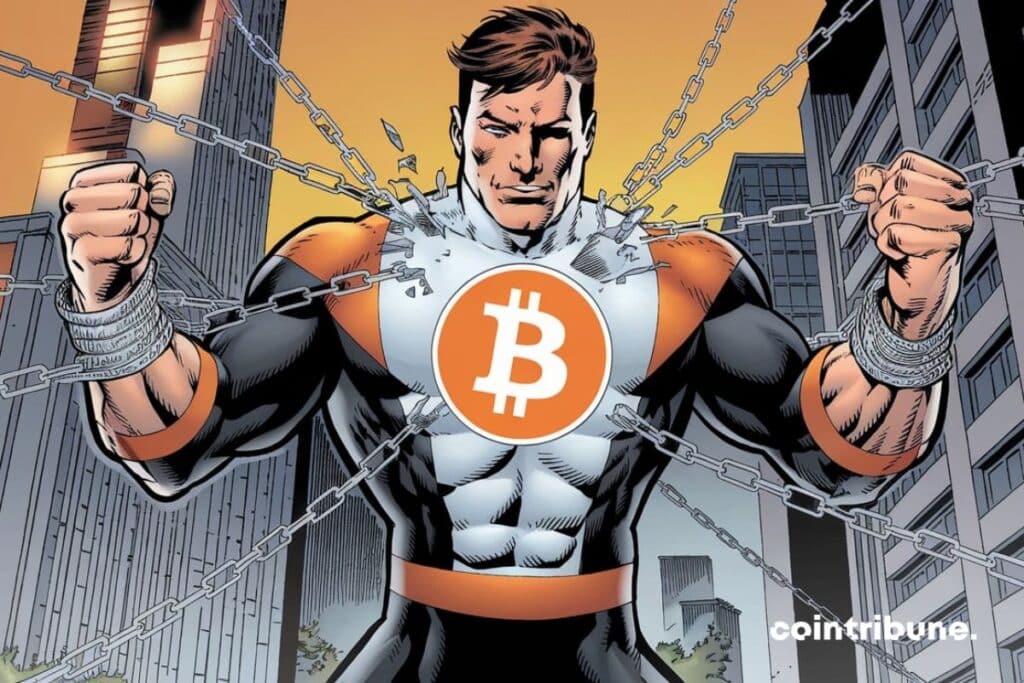
States and institutions exploit censorship to control discourse, limiting innovation and diversity of ideas. Bitcoin stands as a powerful alternative to these drifts. Its decentralized architecture protects transactions and information from any attempt at control. By ensuring user autonomy, Bitcoin defends the fundamental principles of a free and resilient civilization. Resisting censorship is crucial to preserving progress, openness, and creativity. In a world where censorship mechanisms proliferate, Bitcoin embodies a trustworthy technology. This struggle for freedom transcends economic issues: it is at the heart of a true civilizational battle.
The Telegram Symbol
The arrest of Pavel Durov highlights the tensions surrounding censorship and digital freedom. Founder of Telegram, he was apprehended in France on August 24, 2024, for refusing to cooperate with the authorities. Accused of complicity in crimes related to content hosted on his platform, Durov symbolizes the fight to preserve free digital spaces. Telegram, with its 900 million users, refuses any centralized moderation, betting on individual responsibility. This approach clashes with Western governments, accustomed to increased surveillance of social networks. This case illustrates a fundamental problem: centralized platforms, under pressure from states, no longer protect freedom of expression. The Durov case thus highlights the growing fragility of digital rights in an hyperconnected world.
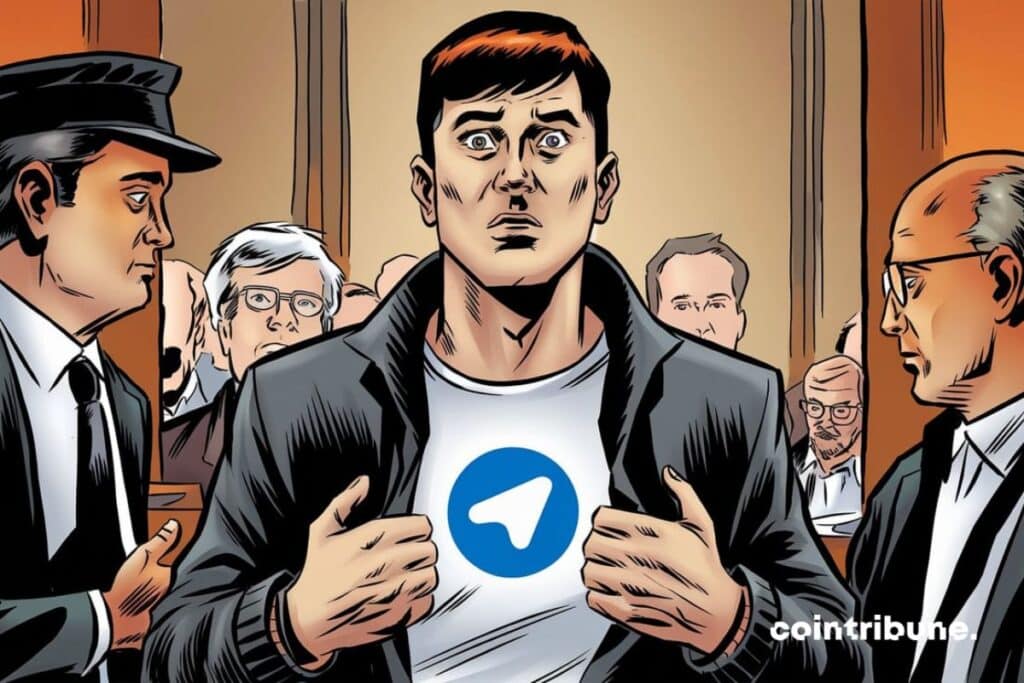
Durov’s refusal to yield to state censorship reveals the drifts of policies invoking the fight against crime. These practices threaten confidentiality, restrict fundamental freedoms, and undermine democracy. Telegram represents a resistance to systematic surveillance, like that exercised by Meta under political pressure. The rise of decentralized alternatives like Nostr, without a central point of control, marks the beginning of a growing revolt against digital authoritarianism. These decentralized technologies, capable of preserving confidentiality and freedom of expression, will become essential in an environment of systematic censorship.
The Orwellian Dystopia Forewarned as Early as 1949
By repressing dissenting ideas, digital censorship recalls the mechanisms of absolute control described in 1984 by George Orwell. In this dystopian novel, the Thought Police embodies totalitarian control, where any ideological deviation is severely punished. Thanks to omnipresent telescreens, the Party exerts total control over the population, annihilating any freedom of thought or expression. Every gesture, word, or emotion is scrutinized. Denunciation, encouraged even within families, creates an oppressive climate of fear. In this prophetic universe, thinking differently constitutes a capital crime, eradicating free will. Orwell describes a system where linguistic manipulation, via Newspeak, limits critical thinking. Surveillance and repression shape a submissive society, unable to conceive a rebellion against the Party.
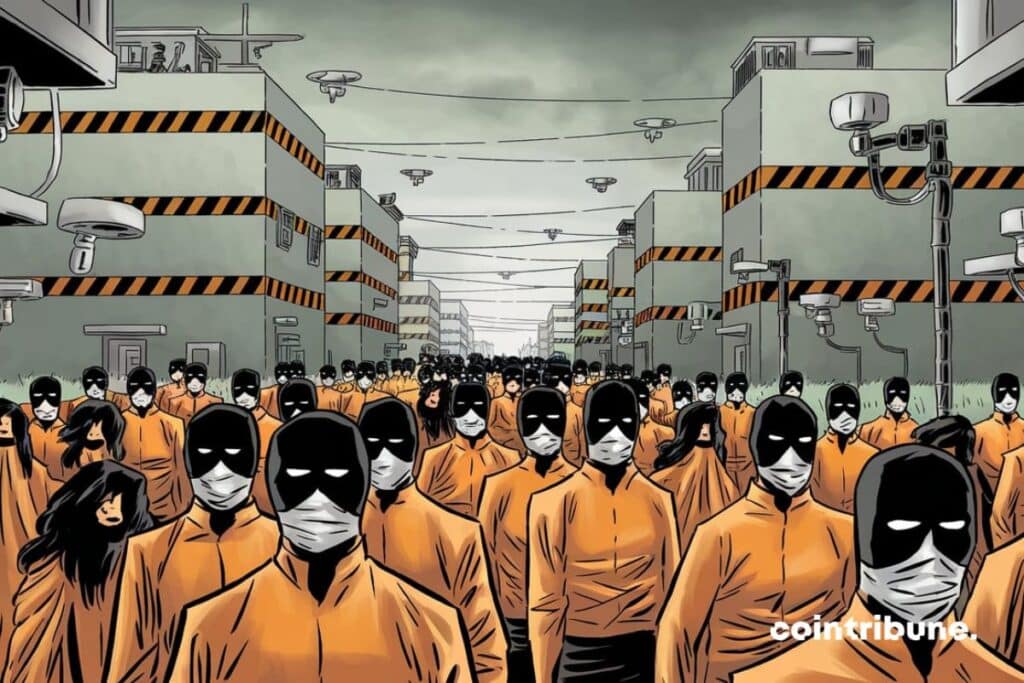
This forewarning Orwellian model finds troubling echoes in current digital censorship practices. The suppression of dissenting ideas on platforms like Telegram or Meta reflects an increasing control of public discourse. Like Newspeak, the repression of online content aims to restrict freedom of expression and thought. The secret arrests described in 1984 resonate with the pressures exerted on figures like Durov. This parallel underscores the urgency of defending digital rights in the face of growing technological authoritarianism from states.
Are Deviances of Freedom More Severe than Abuses of Censorship?
Censorship, inspired by Orwellian schemas, asserts itself as a tool of state control threatening democracy and innovation. Whether it aims to control or to prevent, it raises a crucial debate on its abuses and their consequences. Freedom of expression suffers constant attacks under the pretext of fighting crime and terrorism. These justifications allow states to impose censorship, particularly on platforms like Telegram, eroding fundamental rights. This practice becomes a tool for controlling opinions, setting a dangerous precedent for democracy. This phenomenon reflects an excessive fear of deviance, perceived as a threat, while it can be a source of innovation. In the long term, this approach stifles the diversity of ideas, essential to the vitality of a democracy. A society free of deviance becomes suspicious, signaling a complete repression of divergent thoughts.
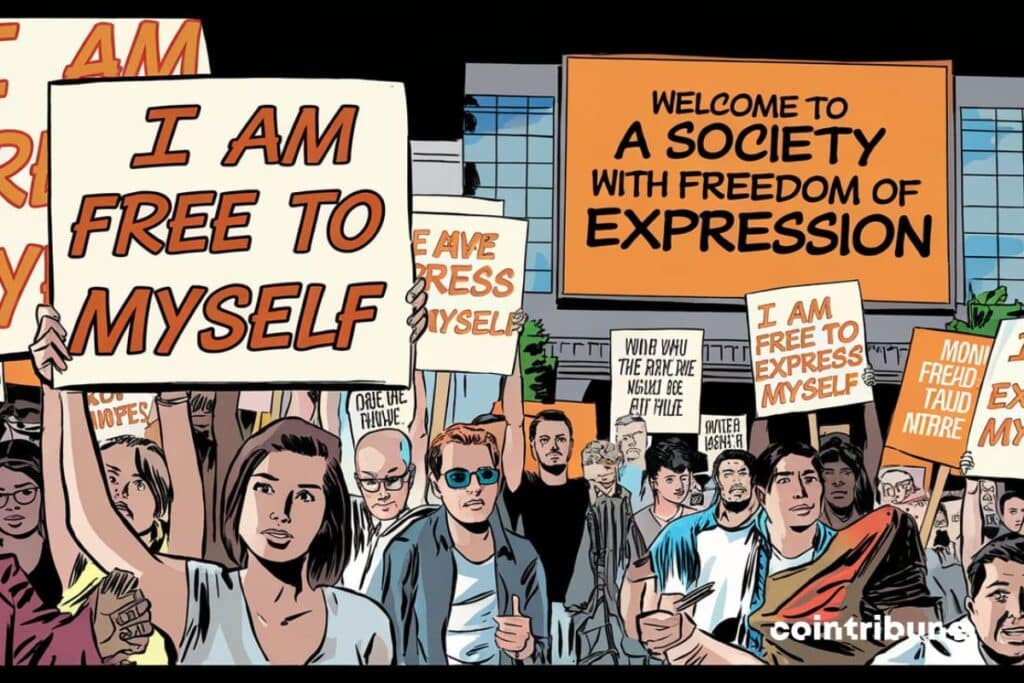
Censorship: A Brake on Creativity and Innovation
Censorship thus breeds an insidious self-censorship, pushing individuals to moderate their ideas for fear of repression. This fear limits intellectual risk-taking, stifling creativity and avant-garde ideas. Yet, innovation often arises from marginal expressions that challenge norms and explore new perspectives. Repressing these transgressive thoughts deprives societies of their ability to evolve and reinvent themselves. A prosperous civilization relies on the tolerance of divergent ideas, driving a culture of innovation and progress. By destroying this balance, censorship traps societies in intellectual, cultural, and social stagnation.

Major scientific, social, and artistic advances frequently stem from ideas deemed deviant or controversial at their inception. Stifling them amounts to slowing creativity and hindering collective progress. A healthy society must accept a share of deviance to encourage the emergence of innovations. By imposing artificial conformity, censorship paralyzes this dynamic, impoverishing innovative ideas and compromising human evolution.
Principle of Proportionality in Censorship
Current censorship often exceeds reasonable limits, sacrificing a majority of innocents to identify a criminal minority. Pretexting crime prevention to impose freedom-restricting measures amounts to depriving citizens of essential rights. Neutral and accessible platforms like Telegram are unjustly stigmatized, wrongly perceived as threats. This approach reveals a lack of understanding of technological tools and an inadequacy of laws in the face of real risks. Rather than censoring massively, the authorities would do well to precisely identify threats. And this should be done by concentrating efforts on actual criminals, thus preserving collective freedom.
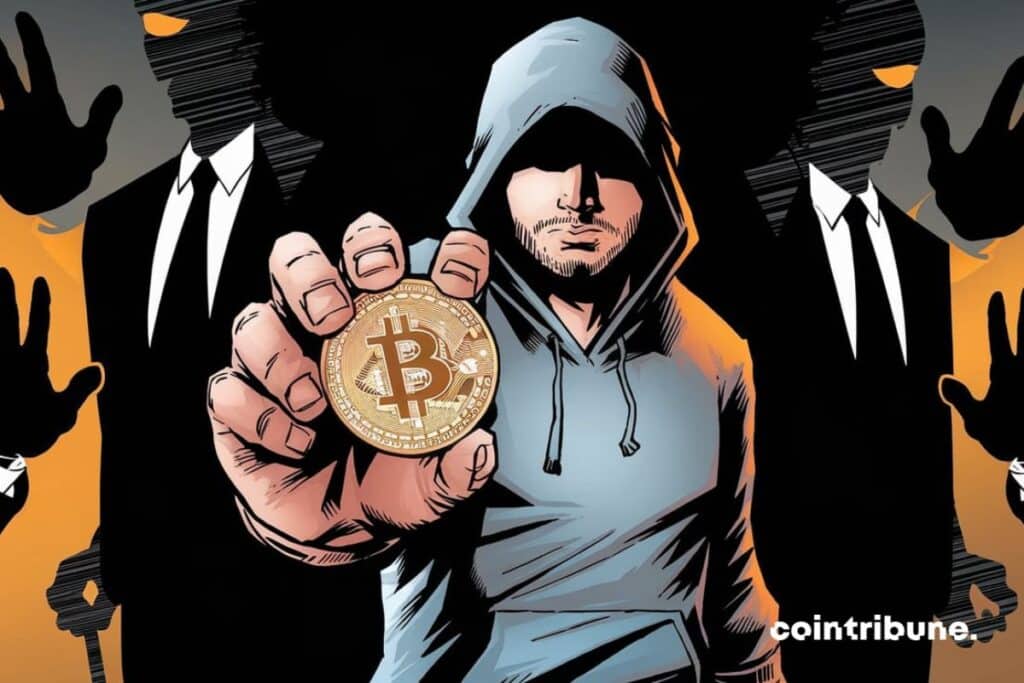
Bitcoin illustrates a blatant example of disproportion in the fight against abuses of censorship. Its neutrality and universal accessibility are frequently criticized due to marginal criminal uses and a lack of public understanding. These criticisms fuel a generalized surveillance of transactions, violating the privacy of the majority. This coercive drift, applied both to digital platforms and currency, reflects an alarming trend: restricting fundamental rights in the name of hypothetical security, to the detriment of democratic principles.
Censorship: The Death of Civilizations
Censorship and excessive centralization threaten the foundations of civilization by undermining the trust essential to coexistence. For example, currency, as a key vector of commercial exchanges, embodies a structural pillar of societies. Its stability is thus coextensive with social and economic balance. A corrupted or censored currency inevitably triggers systemic collapse. History is rife with examples, such as monetary devaluation in ancient Rome, which hastened its decline. Modern manipulations, such as excessive money printing, devaluation, or rampant inflation, similarly illustrate this destructive drift.
Bitcoin, as a decentralized and transparent technology, offers an alternative to prevent these catastrophes. It guarantees free transactions, resistant to censorship and insensitive to centralized manipulations. By preserving the economic and social foundations, Bitcoin opposes the destructive forces of censorship. When a people can no longer debate, innovate, emancipate, or exercise their freedom, civilization inevitably slides towards decline.
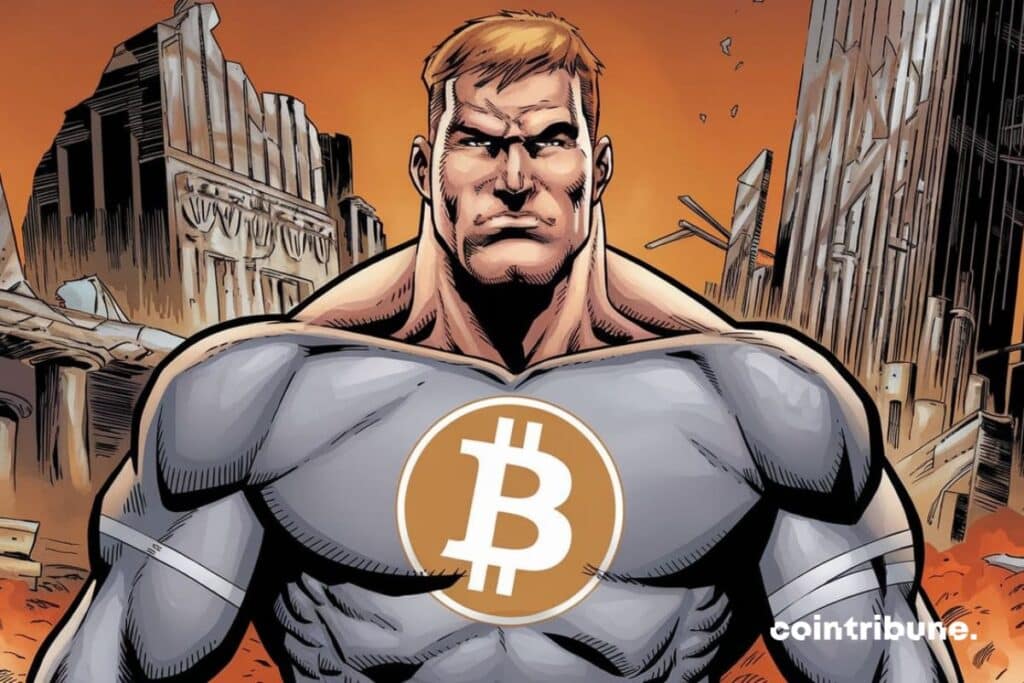
Prosperous societies are built on open dialogue and a confrontation of ideas. Censorship, by stifling these exchanges, establishes an authoritarianism incompatible with progress. A healthy civilization relies on its ability to adapt and face challenges. However, censorship weakens this resilience, rendering societies incapable of responding effectively to crises. This deadly process risks transforming nations into oppressive regimes, incapable of guaranteeing their own survival.
The Initial Decentralization of the Internet: A First Failure Against Censorship
Censorship thus threatens the foundations of societies, making crucial the preservation of free and decentralized digital spaces. In its early days, the Internet was designed as a decentralized tool, promoting open and democratic exchanges. Open source protocols aimed to challenge the hegemony of media power and democratize access to information. However, this utopian vision collided with the increasing centralization of infrastructures and the grip of the GAFAM. The speed of the Internet, once an asset, has become a weakness by facilitating the instant manipulation of data. This observation highlights the limits of centralization in the face of the authoritarian excesses of those in power.
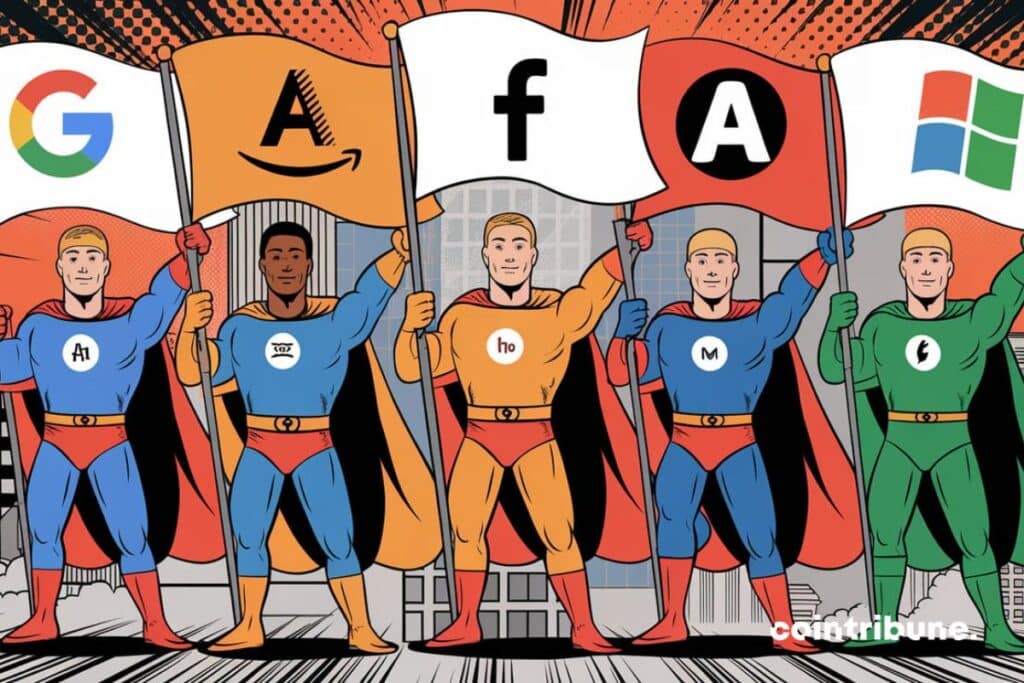
The initial aspirations for a free and decentralized Internet have been diverted by commercial and political interests. This centralization has weakened the resilience and neutrality of the network, facilitating censorship and mass surveillance. Nonetheless, the spirit of decentralization remains in initiatives like blockchains that oppose technological monopolies. This fight for a free Internet echoes the historical struggles to protect democracy from centralizing forces.
The Era of Centralization and Censorship on the Internet is Coming to an End
The centralization of the Internet has established pervasive censorship, where platforms unilaterally alter discourse to serve dominant interests. These manipulations, often invisible, subtly rewrite history and influence public narratives. However, a new digital era is emerging, driven by a growing resistance from users seeking decentralized alternatives. Blockchains, immutable and transparent, offer a promising response to ensure free and reliable access to information. These decentralized technologies fully unleash the potential of an Internet that has reached its current limits. They break down the barriers of centralized control, opening up numerous unprecedented perspectives in terms of sovereignty, transparency, and innovation.
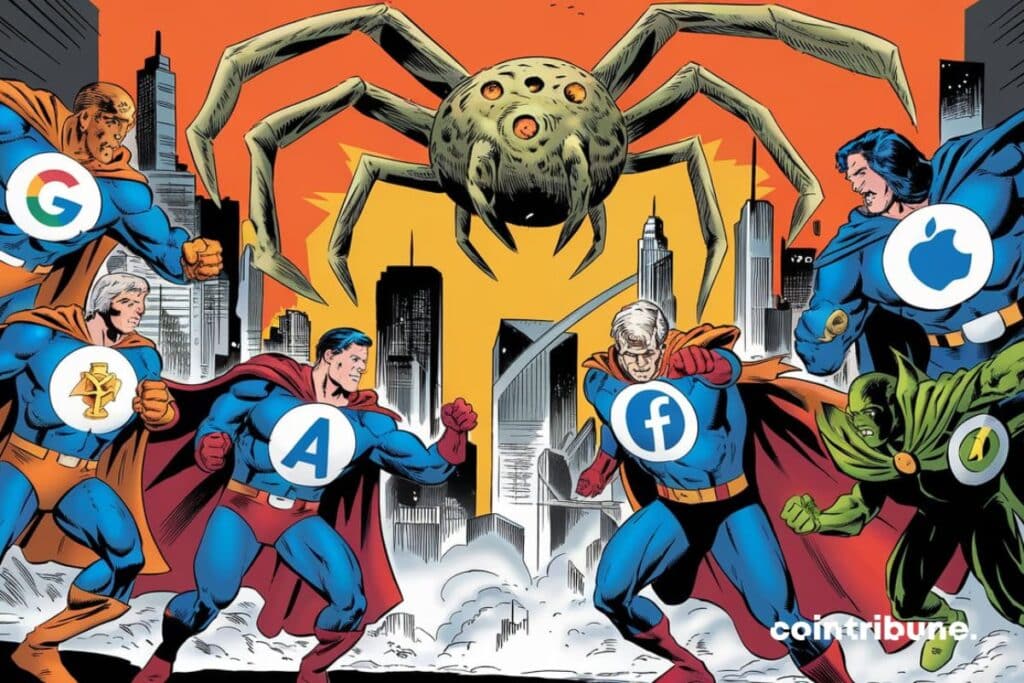
This transition could put an end to the hegemony of the GAFAM and centralized powers over online knowledge. It will mark the end of the digital era as we know it. Decentralized networks like Bitcoin offer unprecedented autonomy, rendering censorship obsolete. The rise of blockchain-based technologies heralds an era where truth and freedom will regain their central role. This technological and digital evolution reshapes how societies interact, innovate… and above all, thrive. For decentralization shakes not only the omnipotence of media powers but also that of financial powers.
Centralization and Control: The Dangers for Private Property and Freedom
Indeed, the centralization of the monetary system poses a direct threat to private property and individual freedom. In the digital age, truly owning assets becomes nearly impossible without going through a mandatory banking system. This systemic dependence has drained the meaning of private property in digital transactions. Individuals no longer have total control over their money, subjected to restrictions imposed by centralized entities. Governments exploit this centralization to surveil, regulate, and limit individual freedoms. By turning banks into tools of censorship, authorities transform the financial system into a weapon of systematic control.
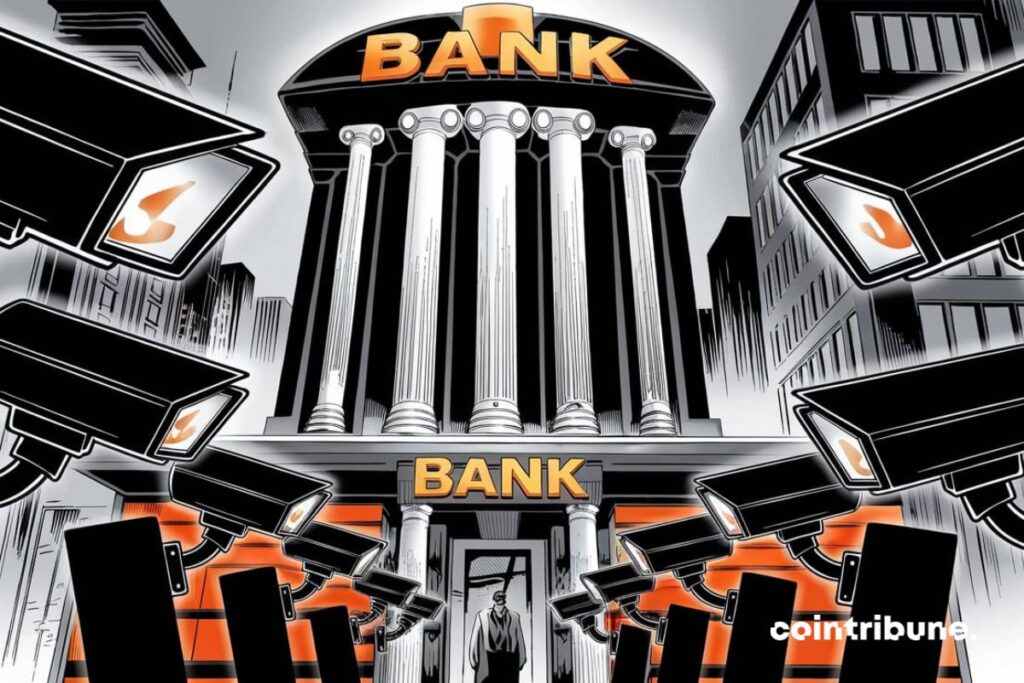
Financial censorship, once marginal, has become institutionalized, infringing on fundamental rights. The freezing of bank accounts or the restriction of access to one’s own funds proves to be modern forms of coercion. These practices undermine private property, a pillar of individual liberties. Increased centralization facilitates the imposition of uniform rules, often disconnected from the real needs of citizens. It makes censorship a powerful lever to control behaviors and repress dissenters, whistleblowers, and other discriminated minorities. These excesses illustrate how centralized control threatens the essential principles of freedom and individual autonomy.
Bitcoin, a Response to Censorship… and to the Decline of Our Civilization
Bitcoin offers a revolutionary alternative to the limitations and corruptions of traditional monetary systems. As a decentralized and leaderless network, it escapes all centralized control. The anonymity of its creator makes it unassailable, unlike figures like Pavel Durov. Bitcoin guarantees total monetary sovereignty, protecting users from censorship, confiscation, and monetary dilution. On one hand, its principle of immutability ensures that data recorded on the blockchain remains intact and verifiable. This prevents any manipulation and censorship, thereby preserving the integrity of transactions and strengthening user trust.
On the other hand, the decentralization of Bitcoin creates a trustless system where transactions can be verified without censorship. It distributes monetary power across a global network of nodes, eliminating single points of control. These symbolize indeed strategic choke points, and thus capacities to harm and censor. By democratizing access to information and transactions, Bitcoin reintroduces private property into the digital world, a right forgotten by centralized systems. By resisting state attacks, it strengthens its security: the more it is attacked, the more robust it becomes. This unique architecture protects fundamental liberties and ensures resilience against external threats.
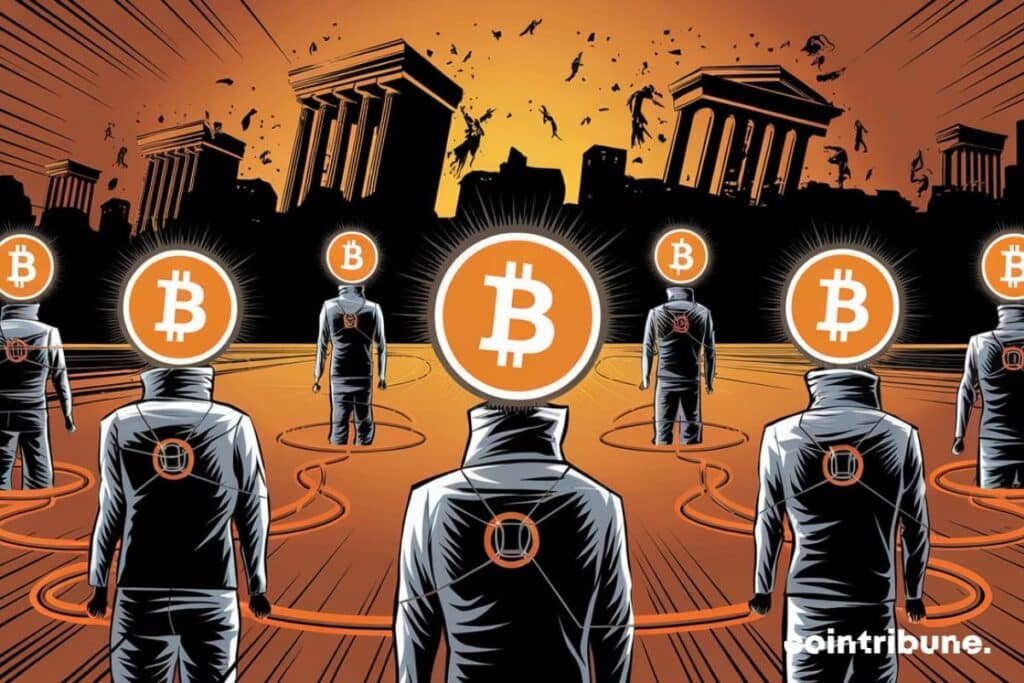
Finally, the transparency, the third key pillar, allows every participant to verify and validate information. This dynamic fosters accountability and trust, essential for harmonious coexistence. By defying censorship and centralized practices, Bitcoin redefines the foundations of civilizations around principles of autonomy, justice, and equity. This new paradigm reinvents societal structure, paving the way for a more resilient and inclusive model.
Bitcoin, the True Democratic Signal Against Censorship
Elusive, Bitcoin represents a moment of truth for democracies, testing their ability to rethink their legal and economic foundations. Two paths lie before them: to submit or to resist. The first aims to perpetuate censorship to consolidate a centralized, decadent, and controlled system, symptomatic of an institutional fear of losing control over citizens. The second, more ambitious, invites a return to fundamental principles of individual sovereignty by establishing a right freed from any censorship. In this context, the limitless power of decentralization emerges as an essential response to authoritarian excesses. If Bitcoin prospers, it will compel democracies to reassess their priorities and reaffirm their commitment to fundamental freedoms. By standing as a bulwark against coercion and censorship, Bitcoin could restore balance between control and freedom, while dismissing the specter of George Orwell’s dystopian predictions.
Maximize your Cointribune experience with our "Read to Earn" program! For every article you read, earn points and access exclusive rewards. Sign up now and start earning benefits.

Consultant international en gestion de projet. Ingénieur de formation, avec une maîtrise en administration des affaires (M.B.A.) et affaires internationales d’HEC Montréal. Passionné de technologie et de cryptomonnaies depuis 2016.
The contents and products mentioned on this page are in no way approved by Cointribune and should not be interpreted as falling under its responsibility.
Cointribune strives to communicate all useful information to readers, but cannot guarantee its accuracy and completeness. We invite readers to do their research before taking any action related to the company and to take full responsibility for their decisions. This article should not be considered as investment advice, an offer, or an invitation to purchase any products or services.
Investment in digital financial assets carries risks.
Read more